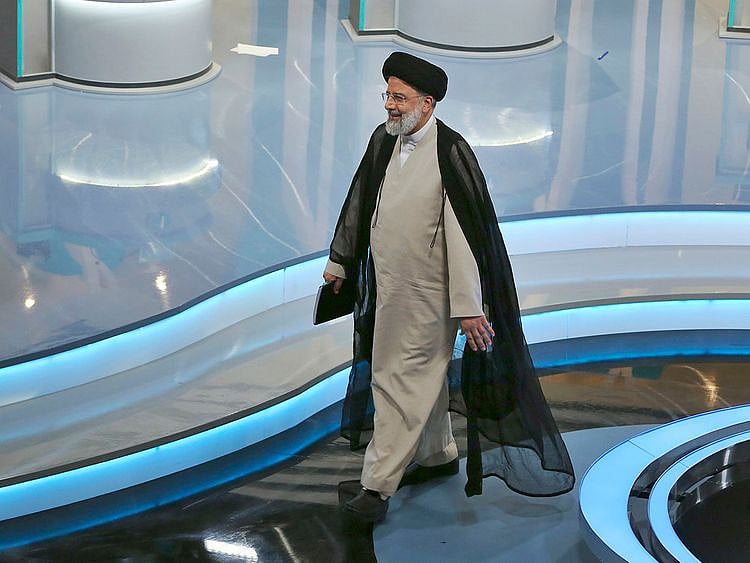Ebrahim Raisi's first test as he takes the reins in Iran
Gulf states hope the new Iranian president will open fresh chapter of regional relations

Also In This Package
Ebrahim Raisi was endorsed as the new president of Iran today. The hardline cleric, a former chief of the judiciary and a protégé of the Supreme Leader Ayatollah Ali Khamenei, begins his term in the midst of domestic and international crises.
The new president is faced with serious challenges that will not make his job easy. First is the crumbling economy, which has been on sharp decline for years due to the US sanctions and more recently because of the Covid-19 outbreak. Secondly, the Vienna talks, aimed at reviving the nuclear deal, seems to have stalled and perhaps reached a dead end, especially after last week’s attack on the oil tanker in the Sea of Oman.
Raisi, was elected in May in not-so-transparent polls that saw a historic low turnout, following the banning of almost all the strong candidates. He has in the past couple of months given a few pointers on his future policies — regarding urgent measures to spur the economy, improving ties with neighbouring Gulf states and a commitment to the framework of the Vienna talks.
However, it is tough to accurately forecast the direction of Iran’s policies in the next four years under a president with such limited experience in both foreign and economic affairs. The recent protests in Khuzestan province over severe water shortages and rife unemployment in the predominantly Arab region of Iran underscores the challenging nature of an effort that requires him to tackle the economic crisis, particularly amid daily record numbers of Covid-19 infections.
American sanctions
Raisi on Tuesday said he would not allow the national economy to be under “the will of foreigners”. But we all know that as long as the US sanctions remain in place, especially those imposed on the oil sector — the main source of Iran’s revenues — it is hard to imagine a viable solution to the economic crunch. The sanctions may not be lifted anytime soon as the trust between Tehran and the West is now at its lowest point following last week’s drone attack on the Israel-linked vessel.
Dealing with the fallouts of the ship attack is probably the first test of Raisi’s proposed regional approach- confidence building and improving ties with the Gulf Arab states. It is extremely tough to go about that while instigating political tension by threatening the security of one of the world’s most important shipping routes.
President Raisi needs to take a clear and immediate stance on this issue to be able to start his promised rapprochement with the Gulf states. That is in addition to concrete steps to end Iran’s hostile actions in the region such as the interference in the internal affairs of Arab states and the continuing support to proxy militias in Lebanon, Yemen, Iran and Syria.
The international community, and the Gulf states in particular, hope the new president will open a fresh chapter of regional relations based on cooperation and bridges of trust to safeguard the stability, security and economic interests of this vital region.
Sign up for the Daily Briefing
Get the latest news and updates straight to your inbox
Network Links
GN StoreDownload our app
© Al Nisr Publishing LLC 2026. All rights reserved.